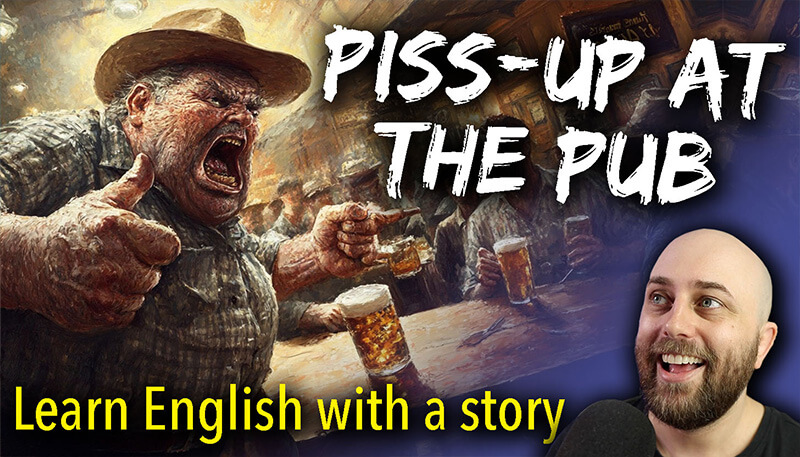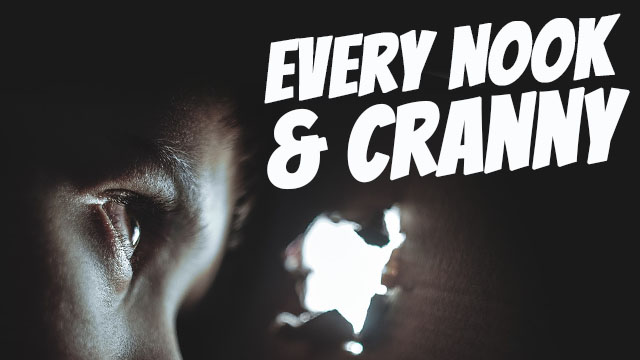Expression: First In, Best Dressed
In this episode of Aussie English I teach you how to use the expression “First in, best dressed”.
Expression: First In, Best Dressed
Hey guys. Welcome to this episode of Aussie English. Today is another expression episode, and the expression of the day is “First in, best dressed”, “First in, best dressed.”
So, it’s sort of similar to other expressions like “The early bird gets the worm”, and this is a kind of proverb that I think is probably quite similar across many languages. I don’t think I’ve talked about it before but I might do it in the future, and I guess you get the idea of the early bird gets the worm, the first bird to wake up gets the worm that is, you know, out and about and easy to catch. Anyway, “first in best dressed”, “First in, best dressed”, it means the first person or people to do something will get something first or will have an advantage.
So, “First in”, “First in”, is like first inside, the first person to get in. And, “Best dressed” is for the person to be wearing the nicest clothes. So, to be the best dressed person is to be the person dressed in the best clothing.
So, I wasn’t sure where this phrase originated from. I looked it up and it seems to have at least come from Australia. So, this is an Australian phrase similar to phrases like “First in, first served” or “First come, first served”. Say, if you were standing in a line to get some food, the first person in the line is going to be the first person served the food. And it seems to have originated in Australia in the 19th century, so, in the 1800s. And I guess in my mind this could be that a store, a suit store or a clothing store, is having a big sale and there’s only one of each piece of clothing, or one of each suit, and they’re all for sale at a cheap price. So, obviously there’s going to be a lot of competition to see who gets in and can buy the best clothing. So, the very best suit is obviously going to be sold first. So, whoever is first in the line, and whoever is first in the store when it opens in the morning is going to buy that suit and then leave the store best dressed. So, they’re going to leave the store dressed in the best clothing, in the best suit. So that at least in my mind is an explanation for how this could’ve come about where a shop could’ve had a sign up saying “First in, best dressed” if they’re selling clothing at least.
But yeah, this is incredibly common in Australian English and I think in English all over the world, at least this idea of “First in, first served”, “First come, first served”, “First in, best dressed”. The first person in is going to get the best thing whatever’s being sold, is going to have the advantage.
So, as always I’ll give you guys some examples of how and when to use this phrase, and how and when you might hear this phrase being used.
Say someone has won some movies tickets on the radio for answering a question correctly. And I guess, they rung up the radio and they were first in best dressed because they were the first person waiting in the queue to get on live air and answer the question. So, not only can we use it in that sense but say they’ve won these two tickets, they’ve gotten onto Facebook and they’ve said, “Look guys, I’ve just won two tickets to the movies. SO, I have one spare ticket. First in, best dressed”. And that would mean, “Whoever asks me first is going to get my spare ticket”. So, the first person in is going to get the ticket, “First in, best dressed”.
Another example could be that you’re selling your car but you’re not really too worried about the price that you want for the car. Say that you have to leave Australia in a hurry and you just need some money for it. So, if the car was worth $10,000 you’ve actually put it up for $5,000 and underneath you could just say, “First in, best dressed”. So, the first person to send me a message and say, “I want the car”, is going to get the car. “It’s all yours”. “First in, best dressed”.
Another example could be that if there’s only one apple left in a fruit bowl and you and your sister or you and your brother both want that one apple, whoever gets to it first is obviously going to take it and eat it. So, if you were the person who got there first you could say that you were “First in, best dressed”. And if you’re the person who didn’t get there first you could say, “Well, my brother was first in, best dressed. I was too slow. The apple’s all his”.
One last example could that you and your wife just got a new car, and you’ve just bought it, you’ve ordered it, it’s arrived, you’re going to pick it up. Both of you want to drive it first and you’re sort of having a bit of competition to see who can get to the car first, open the car door, sit in the driver’s seat and turn it on and drive it. You could say, “First in, best dressed! Whoever gets there first gets to drive the car. First in, best dressed!”.
So, as always guys let’s do a little listen and repeat exercise to help you guys work on your pronunciation and to use this expression in a good context. So, listen and repeat after me guys.
I’ll be first in, best dressed.
You’ll be first in, best dressed.
He’ll be first in, best dressed.
She’ll be first in, best dressed.
We’ll be first in, best dressed.
They’ll be first in, best dressed.
So, I might’ve done that a little too quickly. I’ll do it again but this time a little more slowly, and it’s in the future tense if you can here there. I’m contracting “Will” onto all of the pronouns, “I’ll, you’ll, he’ll, she’ll, we’ll, they’ll”.
I’ll be first in, best dressed.
You’ll be first in, best dressed.
He’ll be first in, best dressed.
She’ll be first in, best dressed.
We’ll be first in, best dressed.
They’ll be first in, best dressed.
So, that’s the episode for today guys. Listen a few times. Try and get the idea of what “First in, best dressed” means and if you use this in conversation with other English speakers they’re going to know exactly what you mean straight away. Keep at it. See you soon!
Here's what you get when you sign up!
- Read while you listen using the Premium Podcast player.
- Understand every word in every episode.
- Download all PDF transcripts and MP3s for 600+ episodes.
- Get access to bonus member-only episodes.












Responses